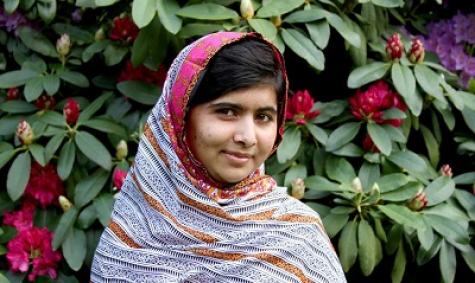Malala Yousafzai, the Pakistani schoolgirl who became famous because of an horrific attack on her and two friends last year, will spend her 16th birthday today addressing the United Nations (UN) General Assembly in New York.
Malala was attacked by the Taliban as she rode to school on a bus in retaliation for her widely-read blog on life under the Taliban for a teenage girl. All Malala wants is a right Australians are privileged to take for granted - education.
In her subsequent recovery from injury, and through her continuing efforts to fight for this right, Malala has been named as one of the most influential people of 2013 and is an inspiration for all people around the world who support her cause.
The UN's Millennium Development Goals include a primary target for universal primary education by 2015. With an estimated 57 million children around the world not in primary school, that target is looking increasingly unlikely to be met. A further 120 million young people between the ages of 15 and 24 lack basic literacy skills, putting them at high risk of achieving either employment or lifetime economic independence. The majority of these people are girls and young women.
There are many barriers faced by young girls in receiving an education. Too many children live in conflict, which affects both girls and boys. Some countries have out-dated views on the role of girls and women: high numbers of girls are forced into child marriage and giving birth at an early age, often without an understanding of the basics of maternal healthcare, family planning and sexual health.
There is significant evidence that increasing access to education has broader community benefits through lowering child mortality, reducing the incidence of HIV amongst children and improving knowledge on nutrition and health practices. An educated woman is also more likely to send her own child to school.
But even without the broader community benefit, educating Malala and children, isn’t just about an economic benefit for the state.
The fight for the right to education is about human rights.
For girls and women, it is also about the right for adult women – not pre-teenage girls - to make their own choices about their life, their body, marriage and family.
In her address to the UN General Assembly, Malala will make the point that less than one month ago, 14 girls were murdered in Pakistan because they wanted an education. She says children around the world fight, and bear the consequences, every day for this right.
Malala wants our support in signing a petition which she will present to the UN Secretary-General Ban Ki Moon.
Children should not be killed for wanting an education.
The nations of the world, represented at the UN, should be under no illusion that the people of the world support the Millennium Development Goal and the Global Education First Initiative
- to see every child in school
- to improve the quality of learning
- to prepare children to grow up as global citizens.
Wish Malala Yousafzai a ‘Happy Birthday’ and sign the petition here.








 Agree (0)
Agree (0) Disagree (
Disagree (











__small.png)










